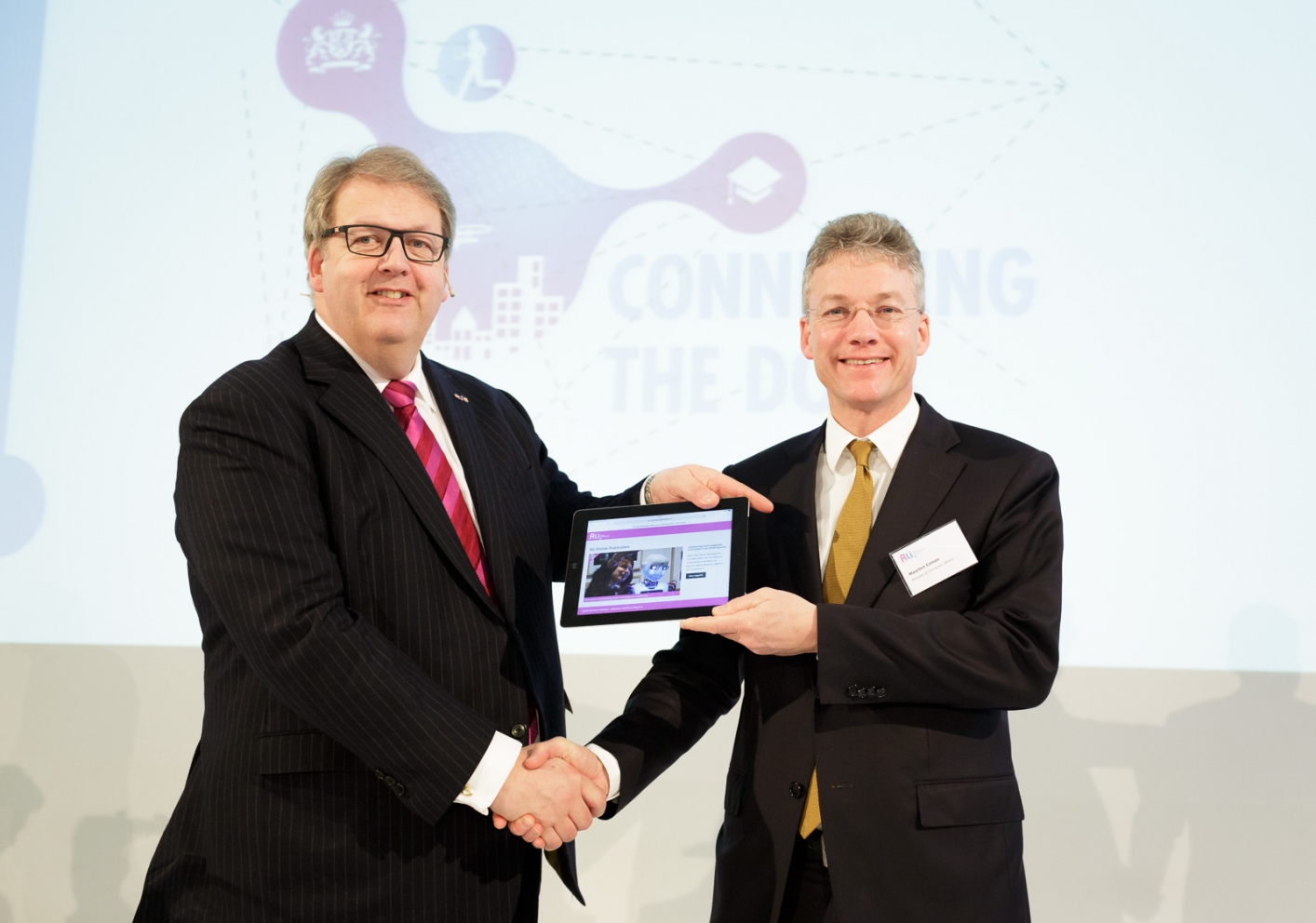
Mr Camps – who represented the Minister – said that he was pleased with the survey report, and that he believed it covered the right topics and was published at the right time. He confirmed that the government needed to find a new balance between offering scope for innovation and safeguarding public values. Because technological innovations can offer solutions to societal challenges, the government must reconsider aspects of its policy and develop new regulatory concepts.
In his concluding remarks, Rli Chairman Henry Meijdam referred to the words of astronaut André Kuipers, who had said that in outer space he missed nature most of all. Mr Meijdam made an appeal to consider people’s emotional needs when developing technological innovations.
Digital magazine
The magazine offers an accessible and clear summary of the survey, and provides a brief introduction to innovations in the area of healthy food, efficient mobility and smart buildings. Short texts, photographs, films and infographics familiarise the reader with the main subjects covered in the survey report. The magazine includes a link to the downloadable full text of the survey.
‘Connecting the Dots’ conference
At the conference a number of leading thinkers and innovators presented their vision of technological innovations in food, mobility and buildings. The speakers and panel members represented government, the private sector, knowledge institutes (both researchers and students) and civil-society organisations, and their perspectives and insights sparked lively discussions among the audience. The speakers were Prof. Carlota Perez (London School of Economics), Prof. Kent Larson (Massachusetts Institute of Technology), Dr André Kuipers (European Space Agency), Prof. Jaap Seidell (VU University Amsterdam), and Bryant Walker Smith (University of South Carolina). The conference was attended in person by 250 participants, with an additional 230 people taking part online. The participants enjoyed lively debates at the eight-seat round tables that had been placed throughout the venue. The online participants could follow the speakers via live streaming and ask them questions.
Meet and greet session with Carlota Perez. Foto Fred Ernst
During the lunch break, there was great interest in the ‘Meet & Greet’ sessions with individual speakers, where the discussion continued in an informal and open atmosphere. Other participants enjoyed a tour of Utrecht by wirelessly charged electric bus. In the foyer, participants were inspired by enthusiastic researchers demonstrating the innovations they had developed. Innovative concepts had even been incorporated into the lunch dishes served at the conference.
Reports ‘Connecting the Dots’ conference
See video - impression of the day - ‘Connecting the Dots’
Presentations keynote speakers and more information about ‘Connecting the Dots’
About the survey report
On 22 January 2015, the report ‘Technological Innovations in the Human Environment’ was presented to Minister Kamp of Economic Affairs, Minister Schultz van Haegen of Infrastructure and the Environment, and Minister Blok of Housing and the Central Government Sector. In the report, the Council notes that technological developments are occurring at an increasingly rapid pace and are becoming ever more interrelated. There is closer interaction between technology and society, and a new dynamic is emerging in technological developments. Innovation is having an increasing impact on our way of life and on social and moral values like privacy and transparency, often before society has carefully considered the issues at stake.The Council believes that the government should organise debates about the impact of innovation on our values, and should do so at an earlier stage and with a wider range of stakeholders.
The Council concludes that the dynamic nature of the developments is putting the government’s adaptive capabilities to the test. The government will have to play a different role in the existing and emerging networks that will shape the closer interaction between technology and society. It is no longer a question of the private sector or the government. Governments, companies, knowledge institutes, civil-society organisations and citizens will have to collaborate in networks much more frequently, and take initiative and responsibility.
Tech Innovations skyscrapercompetion honourable mention 2014 Bron eVolo REX Hollandse Hoogte
for more informaton please contact Lianne Doeswijk, project leader, lianne.doeswijk@rli.nl
Read press release: 'Technology requires a different role from government'